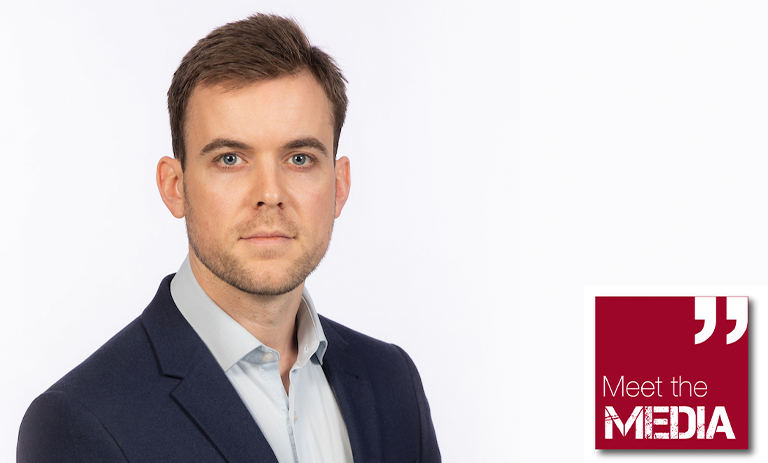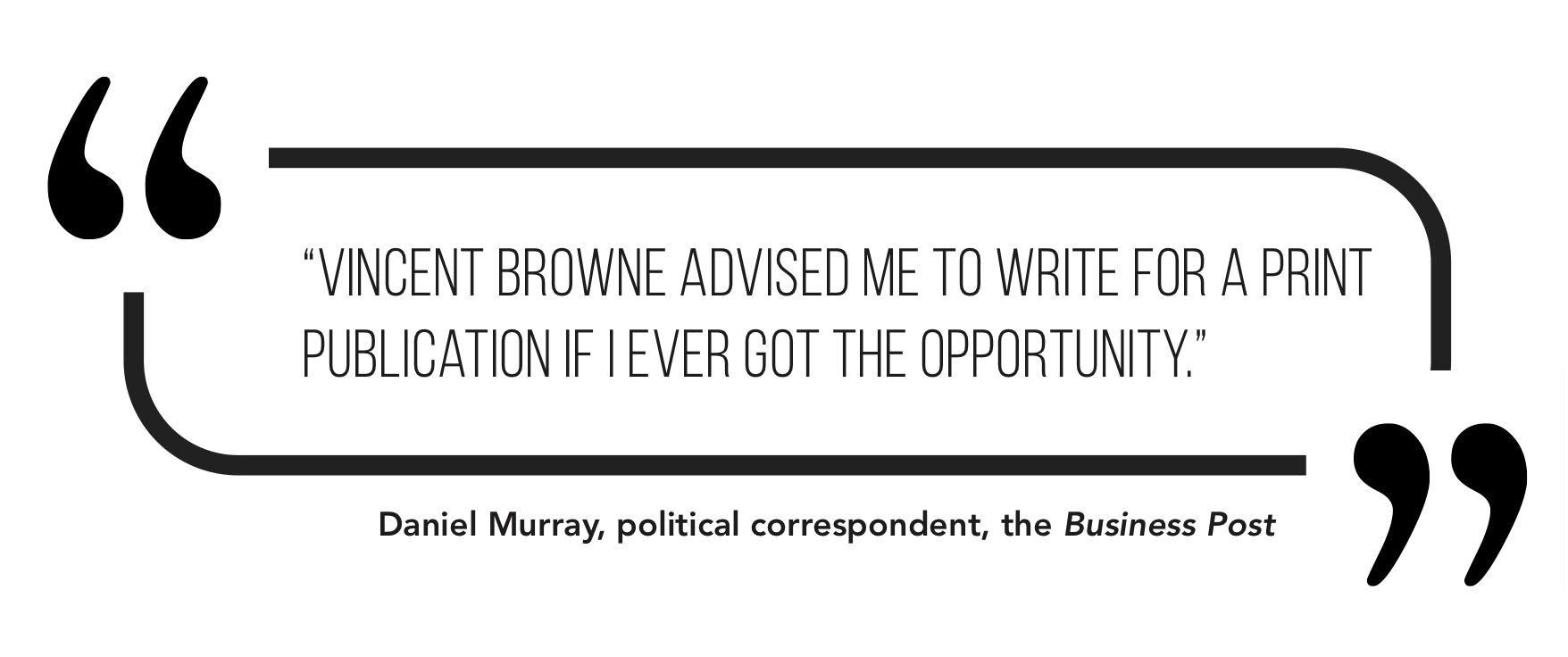Meet the media: Daniel Murray

Daniel Murray is a political correspondent with the Business Post, having previously worked as a producer on the Tonight with Vincent Browne show from 2012 to 2017.
How did you get into journalism?
I completed an MA in journalism at Dublin City University nearly 10 years ago and off the back of that landed a placement in TV3 (now Virgin Media) on the Tonight with Vincent Browne show.
I still remember going for the interview with Bob Hughes, who was deputy director of news in TV3 at the time. The only placement on offer was for an entirely different show called Late Lunch Live. I spent most of my interview talking about current affairs, politics and how much I enjoyed the Tonight show. To Bob’s credit, he went off and informed the then producers of the Tonight show that there was an eager young man who would be interested in an internship on the show. To my surprise, Bob rang me up the next week and said he had a place for me on the Tonight show, even though no placement there had been on offer. I was delighted and stayed working with the show for five years. I owe Bob my start in the industry. I then spent some time in public relations before joining the Business Post in 2019.
How do you think the profession is evolving?
I think the quality of journalism in Ireland is very high, but the industry has been going through this digital ‘transition’ for many years now, with most titles still struggling to find an online subscription model that can make up for the drop in print circulation and advertising revenue that has occurred. I think journalists are much nimbler as a consequence of things shifting online and have to be much quicker at both understanding and turning around stories.
However, there is merit in what we do at the Business Post, which is to focus on a single weekly edition alongside our online content. This results in a depth and quality of coverage that is worth holding onto, and I hope that focus can be maintained even if we reach a point where people are not buying single editions of print newspapers anymore.

What are the most significant challenges of working in print journalism?
The pressure! Endless deadlines, never-ending research, confrontational interviews, the responsibility of having a large public platform, fact-checking your work to within an inch of its life, and then trying to tie it all together into something that is digestible and engaging.
But these are also all of the things that are most rewarding and exciting about working in print journalism. Years ago, Vincent Browne advised me to write for a print publication if I ever got the opportunity, because writing forces you to think through, clarify and organise your thoughts on whatever subject you are writing on. That is a very valuable exercise to do day-in-day-out. Print, as opposed to broadcast, gives you slightly more time to do that, and therefore I think it remains the most valuable medium of news delivery in terms of quality, depth, and accuracy.
Who do you admire most within the industry and why?
I admire so many of my peers for their relentless work-ethic, their ingenuity in finding and breaking stories and their communications skills in selling those stories. I learn something new from my generation of journalist colleagues every week on all those fronts.
But it is those who have been in the game for a long time and continue to have the hunger, drive, and talent to deliver stories that I admire the most. These include the likes of Justine McCarthy, Stephen O’Brien, and Harry McGee, to name a few.
What has been your most significant story or project to date?
I think my coverage, along with my colleague Lorcan Allen, of Ireland’s electricity system crisis is the most significant work I have done to date. I was covering the issue for years before it emerged into the mainstream, and we in the Business Post have led that coverage and broken nearly every story in relation to it as the scale of the crisis in power supply versus power demand has become apparent. I think we have done a good job of investigating, deciphering, and translating what is an incredibly complex area, all the while ensuring we anchor our coverage in the environmental realities of climate change and the energy transition.
Equally, our broader coverage of climate change has treated the issue with a seriousness and attention to detail that I think has really made an impact on both policy and other media coverage in Ireland.
How do you spend your time outside of work?
These days all my time outside of work is spent with my amazing wife Niamh and our new baby boy Ruadhán, who is just six months old. I am a music lover as well and my main pastimes involve playing guitar, piano, and occasionally singing. I like to read as well and am particularly interested in history, but that has been put somewhat on the back burner since our very demanding little boy arrived!
I try to wake up early to exercise most days and my weekday evenings are mostly spent watching whatever the latest season of true crime myself and Niamh are engrossed in.





